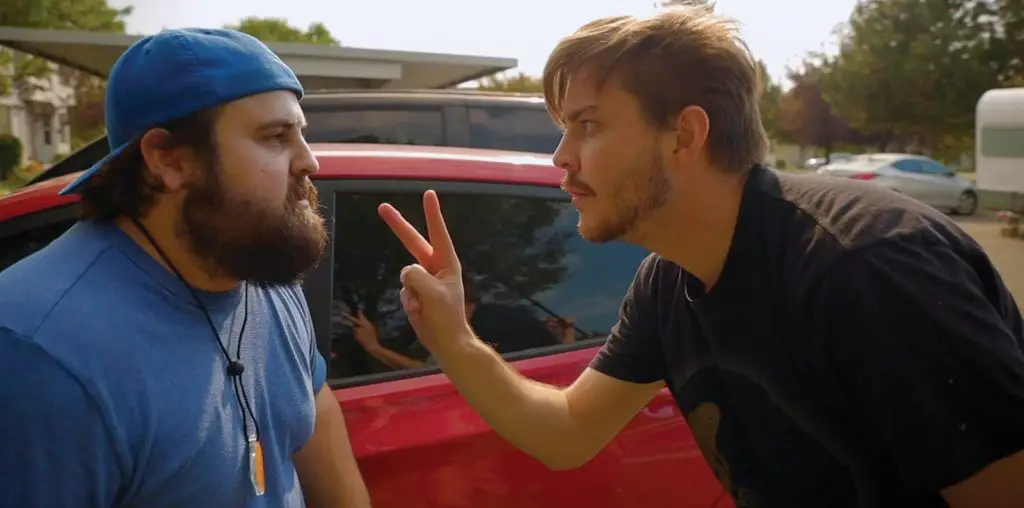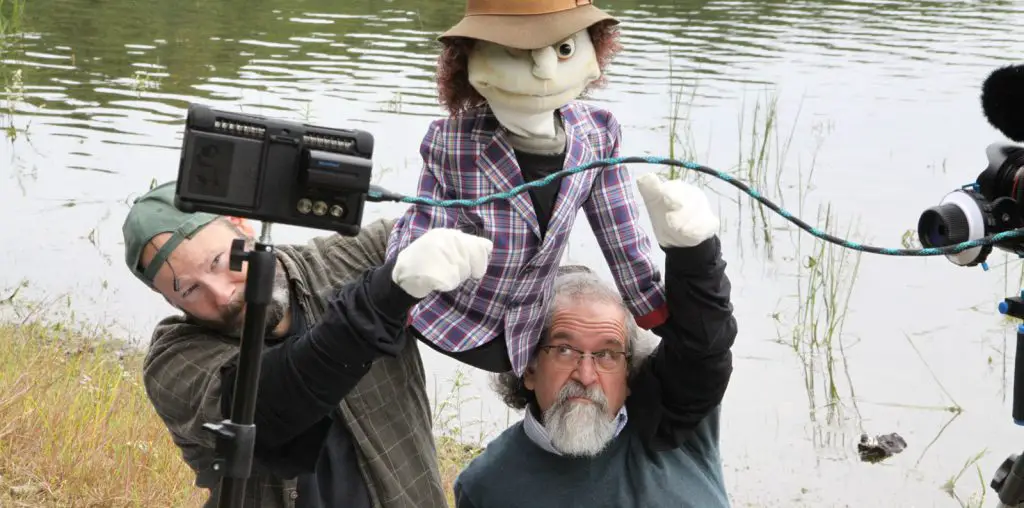
BOOTLEG FILES 198: “The Poppy is Also a Flower” (1966 all-star thriller extolling the United Nations’ anti-drug campaign).
LAST SEEN: Available for online viewing at MovieFlix.com.
AMERICAN HOME VIDEO: In 1989 via the United American Video label.
REASON FOR DISAPPEARANCE: It appears to have become a public domain title.
CHANCES OF SEEING A DVD RELEASE: Just as a PD duped offering.
The history of the United Nations has no shortage of failures. Since its creation in 1945, the world body has bumbled and stumbled its sorry way through catastrophes relating to military actions, economic development, colonial trusteeship, refugee emergencies, educational outreach, health and medical support, and the diplomatic brokering of thorny crises.
Surprisingly, few people recall that the UN is also a failure when it comes to filmmaking. Back in the 1960s, someone thought it would be a great idea to create an all-star thriller that celebrates the UN’s role in busting up the international heroin traffic rings. The resulting production was an oddity that bore one of the most curious titles ever slapped on a movie: “The Poppy is Also a Flower.”
The seeds to “The Poppy is Also a Flower” originated from a rather unlikely source: Ian Fleming, also known as James Bond’s daddy, came up with the story for the film. The 007 connection was solidified by having Terence Young, the director of several early classics in the Bond series, at the helm of the project. Young reportedly worked for free on this project, and he recruited an A-list cast that agreed to work for minimum fees (some reports claimed the stars were only paid $1 for their input, but I find that a bit unlikely).
But even with corner cutting on the talent, the film still required a great deal of location shooting. Fleming, in typical 007 fashion, created a globetrotting adventure that pinballed between Iran, Switzerland, Italy and France. To finance the multinational production, UN Secretary-General U Thant leaned on the Xerox Corporation for funds. Incredibly, Xerox gave the UN money for this endeavor. Since the film needed a country of origin, it was designated as an American-Austrian co-production (don’t ask how the Austrians got in on this).
Strangely, the UN wasn’t particularly concerned with some of the behind-the-camera talent. Del Tenney, the creator of Grade Z shlock such as “The Horror of Party Beach” and “Curse of the Living Corpse,” snagged associate producer credits. And Edgar Rosenberg, better known for being married to Joan Rivers than for creating any memorable movies, was the film’s executive producer.
“The Poppy is Also a Flower” begins with a pre-credit sequence that offers a huge surprise: the return to movies of Princess Grace of Monaco (the former Grace Kelly) after a 10-year absence from the big screen. Princess Grace opens the film by speaking from her palace about the dangers that the seemingly benign poppy is creating in the world. It’s not the flower’s fault, mind you, but rather it is the opium created from the flower. Princess Grace bemoans the influence of drugs on the world’s young people, and she praises the UN’s effort in fighting opium trafficking.
In retrospect, Princess Grace’s presence is a bit odd since Monaco was not a part of the UN in 1966 (its membership in the world body came three decades later). Still, having one of the most captivating women in film history back on camera is a definite plus.
So how can one possibly top an appearance by Princess Grace? Well, hang on to your hernia belts…
Out in the Iranian desert, a tribal chieftain Hugh Griffith (yes, the Welsh actor) negotiates the sale of his opium poppies to a suspicious American (Stephen Boyd). The American arouses a little too much suspicion, and he is kidnapped and killed under the order of Europe’s top opium smuggler (Gilbert Roland), who works off a yacht maintained by his stoic right-hand man (Harold Sakata).
Meanwhile, the leaders of Iran’s military and law enforcement units (Omar Sharif, Yul Brynner and Jack Hawkins) confer with a pair of UN agents (Trevor Howard and E.G. Marshall) on the death of the American – he turned out to be a federal agent. The Iranians, under UN supervision, manage to inject a radioactive element into the tribal leader’s opium shipment as a means of monitoring where the Iranian poppies are winding up.
In the midst of this, a mysterious woman who claims to be dead American’s wife (Angie Dickinson) turns up in Teheran. This is odd, since the dead man was a bachelor. Hmmm?
Anyway, the UN agents return to Geneva and confer with their superior (Barry Sullivan). They get word that the radiation-thick opium is in Naples. The agents arrive in Naples and confer with the head of the local police (Marcello Mastroianni, although his voice is clearly dubbed by another actor). They also interrogate one “Happy” Locarno, a former drug merchant who is now in the aspirin business (Eli Wallach), and a lady wrestler who is reliant on the Persian dope (Senta Berger). There’s also an inconclusive interview with the captain of the freighter that transported the shipment to the Naples port (Anthony Quayle).
The agents then jet over to Monte Carlo. Princess Grace isn’t home, so they stop off at a nightclub where Trini Lopez is singing “La Bamba” and “Lemon Tree.” One of the agents (Trevor Howard) wangles an invitation to the yacht of the drug lord. On the yacht, he meets the bad guy’s doped-up wife (Rita Hayworth). Alas, his cover is blown and he gets killed.
The remaining agent then goes in for the collar and bust up the dope ring on a midnight train ride across France. And who should be there to help him but…Angie Dickinson! And it turns out that she wasn’t the dead American’s wife – she was his sister! And not only that, she’s also a federal agent!
(She was his sister and she claimed to be his wife? Ewwww!)
If any of this sounds a tad bit silly, it is because it is. “The Poppy is Also a Flower” is not a serious effort to analyze the roots of drug trafficking and offer a solution to stopping it. Instead, it is a would-be James Bond adventure that makes pit stops in exotic locations while playing the spot-the-star game that was the trend in epic extravaganzas during the early 1960s (used to greater effect in flicks like “How the West Was Won,” “The Longest Day,” “It’s a Mad, Mad, Mad, Mad World” and “The Greatest Story Ever Told”).
But you haven’t lived until you’ve seen the film’s train-bound finale, with a two-fisted E.G. Marshall smacking Harold Sakata (Oddjob from “Goldfinger”) while Rita Hayworth carries a yapping poodle as she wobbles around in a druggie haze – yeah, the film is a real “Huh?”-generating effort.
When the UN was ready to present “The Poppy Is Also a Flower,” problems arose. No American theatrical distributor wanted it, so the film turned up on ABC-TV for a one-time broadcast. For no clear reason, the print used for the broadcast carried the title “Poppies are Also Flowers,” even though the film was not promoted with that moniker. The TV presentation wasn’t a total waste: Eli Wallach snagged an Emmy Award for his guest appearance in the film.
Around the world, however, the film’s release was erratic. It played in theaters in some countries and on TV in others. The title kept changing from market to market: it was “Danger is Wild” in Great Britain, “Flowers of the Devil” in Spain” and “Operation Opium” in France and Scandinavia.
More recently, the film has turned up on DVD as “The Opium Connection.” The DVD labels releasing the film specialize in duped public domain prints, and the quality of DVDs is shaky (the copy I purchased appeared to have come from a very well worn 16mm print). I don’t know if “The Poppy is Also a Flower” is a PD film, but if its copyright was allowed to lapse then it would be yet another UN-inspired failure (and why am I not surprised?).
IMPORTANT NOTICE: The unauthorized duplication and distribution of copyright-protected material is not widely appreciated by the entertainment industry, and on occasion law enforcement personnel help boost their arrest quotas by collaring cheery cinephiles engaged in such activities. So if you are going to copy and sell bootleg videos, a word to the wise: don’t get caught. The purchase and ownership of bootleg videos, however, is perfectly legal and we think that’s just peachy! This column was brought to you by Phil Hall, a contributing editor at
Film Threat and the man who knows where to get the good stuff…on video, that is.
Discuss The Bootleg Files in Back Talk>>>

